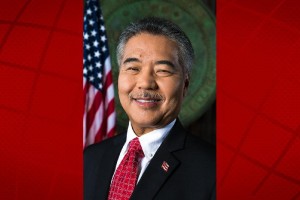Ige Signs Wastewater System Rules Banning New Cesspools
Governor David Ige signed new Wastewater System rules into place on Friday that would ban new cesspools across the state.
Hawai’i is the only state in the country that has allowed new cesspools, which were currently permitted on most of the Big Island, as well as parts of Maui and Molokai. The rest of the state had already banned the new cesspools.
According to the Hawai’i Department of Health, Friday’s ban by Governor Ige would “stop the addition of pollution from approximately 800 new cesspools per year.”
Hawai’i has the leading number of cesspools, about 88,000, in the country. Cesspools are not treated and are responsible for about 55 million gallons of raw sewage into Hawai’i’s groundwater every day, according to DOH.
Under the new rules, which also put a 2015 law into effect, a tax credit of up to $10,000 can be provided for cesspools that are upgraded to sewer or septic systems over the next five years.
The law would allow owners of cesspools located within 200 feet of the ocean, streams, or marsh areas, or near drinking water sources, to qualify for the tax credit.
DOH will issue forms for taxpayers who want to apply for the credit.
Prior to the application, taxpayers should first establish with a contractor that their cesspool is in a location that qualifies for the credit and then keep records to show DOH and the Tax Department the amount spent on a qualifying upgrade.
The new administrative rules take effect ten days after it is filed with the Lieutenant Governor’s office.
“Today’s action protects public health and is a good first step toward eliminating water pollution from cesspools,” said Deputy Director of Environmental Health Keith Kawaoka.
















